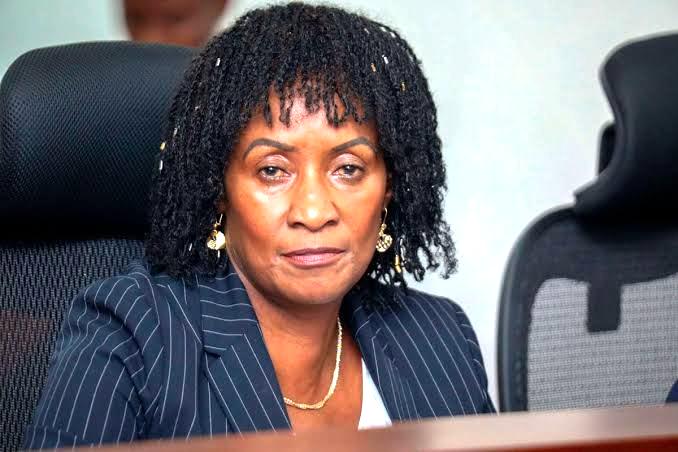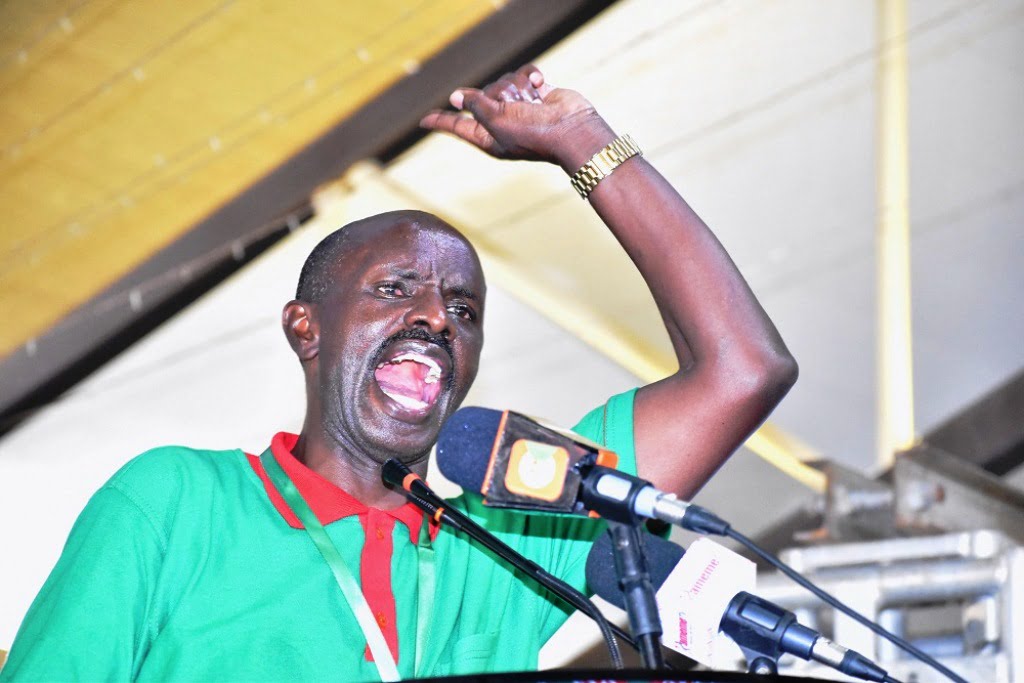Dr. Nancy Njeri Macharia’s decade-long tenure as the Chief Executive Officer and Secretary of the Teachers Service Commission (TSC), which ended recently, was a transformative yet polarising era in Kenya’s education sector.
As the first woman to lead the TSC, Macharia’s leadership was marked by significant reforms, contentious disputes, and systemic challenges. Below is an analysis of the good, the bad, and the ugly aspects of her tenure, followed by the essential traits required for her successor at the TSC’s Upper Hill headquarters in Nairobi?
The good
Macharia’s tenure saw notable strides in modernizing teacher management and advancing educational reforms. She spearheaded the recruitment of over 100,000 teachers, growing the teacher establishment from 311,665 in 2015 to 413,653 by 2025, addressing chronic staffing shortages in public schools.
Her administration introduced the Teacher Professional Development (TPD) program, a mandatory training initiative to equip teachers with modern pedagogical skills, particularly for the Competency-Based Curriculum (CBC).
ALSO READ:
Reckless sexual behavior among the youth, its attendant risks should concern us all
The TSC also embraced digital transformation under her leadership, with the Teacher Performance Appraisal and Development (TPAD) system implemented in 2016 to enhance teacher accountability across primary, secondary, and special needs institutions.
Macharia’s efforts to streamline pension processing were commendable. She ensured the submission of 4,800 teachers’ pension claim files to the National Treasury in 2021, reducing delays for retirees.
She also introduced comprehensive health insurance for teachers and negotiated two Collective Bargaining Agreements (CBAs)—2017–2021 (Ksh 54 billion) and 2021–2025 (Ksh 18 billion)—improving teacher welfare despite implementation challenges.
Her commitment to decentralisation, with 394 sub-county offices established and new TSC offices built in Bomet, Machakos, and Kilifi, brought services closer to teachers. Macharia’s zero-tolerance stance on corruption was evident when she fired her deputy, Dr. Kennedy Juma Mulunda, in 2022 for alleged misconduct, signaling a crackdown on employment cartels.
The bad
Despite her achievements, Macharia’s tenure was marred by strained relations with teachers’ unions, particularly the Kenya National Union of Teachers (KNUT) and the Kenya Union of Post Primary Education Teachers (KUPPET).
ALSO READ:
Principal spending nights with her students in dorm over grave security threats
Her hardline approach, including withholding union dues to weaken strikes, drew accusations of suppressing union activities.
Disputes over CBA implementation, especially salary increments and allowances, led to multiple strikes, disrupting learning and highlighting poor stakeholder engagement. The TPD program, while innovative, faced backlash for its cost, which teachers had to bear, and its perceived disconnect from classroom realities.
Macharia’s administration also struggled with inefficiencies. A 2021/2022 Auditor General’s report revealed Ksh 466 million in salary overpayments due to delays in updating records for deceased, resigned, or absent teachers, pointing to systemic flaws in payroll management.
Allegations of favoritism in teacher promotions, with 25,000 promotions in 2025 criticized as skewed, further eroded trust. Her handling of CBC implementation was criticized for inadequate teacher training, with only 229,292 primary and 75,000 junior secondary teachers retooled by 2025, leaving gaps in curriculum delivery.
ALSO READ:
Emurua Dikirr NGCDF officials warned against bursary irregularities
The ugly
The ugliest aspects of Macharia’s tenure involve accusations of high-handedness and defiance of legal mandates. She faced criticism for ignoring court orders, including those related to CBA implementation and union dues, which fueled perceptions of arrogance.
Her fallout with then KNUT’s Wilson Sossion over CBC rollout and career progression guidelines led to legal battles, with the TSC accused of undermining union rights. Education pundits say 2024 reflected public frustration, with calls for her removal due to alleged mistreatment of teachers and irregular hiring practices by politicians.
Required traits for the incoming TSC CEO
The incoming TSC CEO, based at the Upper Hill headquarters, must possess a blend of qualifications, skills, and attributes to address the commission’s challenges and build on Macharia’s achievements.
As outlined in the TSC’s May 2025 advertisement, candidates must be Kenyan citizens with at least a bachelor’s degree in education or a related field (a master’s degree is preferred) and 10 years of experience in education, public administration, or corporate leadership, including five years in a senior role. Beyond these, the following traits are critical:
ALSO READ:
Govt to build Ksh1.2 billion hostels in Machakos to accommodate 2,500 students
Collaborative leadership: The CEO must foster dialogue with KNUT and KUPPET to resolve industrial disputes and ensure CBA implementation, avoiding the adversarial approach that defined Macharia’s tenure.
Strategic vision: With the CBC-to-CBE transition underway, the CEO needs to ensure robust teacher training and resource allocation to bridge implementation gaps, particularly in marginalized areas.
Integrity and transparency: Adherence to Chapter Six of the Kenyan Constitution, which emphasizes leadership and accountability, is non-negotiable. The CEO must address corruption allegations and ensure merit-based recruitment and promotions.
Financial acumen: Strong budgeting and financial management skills are essential to manage the TSC’s resources, secure funding for teacher recruitment and resolve issues like salary overpayments.
Stakeholder engagement: The CEO should engage parents, teachers, and communities to simplify CBE demands and rebuild trust, addressing the alienation felt under CBC.
Digital proficiency: With digitization a priority, the CEO must advance automation of TSC records and services, building on Macharia’s decentralization efforts.
Empathy and communication: Excellent relationship-building skills are needed to unify a diverse workforce of over 400,000 teachers, ensuring policies reflect classroom realities.
ALSO READ:
School girls in Kwale targeted in menstrual health campaign to promote dignity, equality
Dr. Nancy Macharia’s tenure was a mixed bag of bold reforms and divisive policies. Her achievements in teacher recruitment, digital transformation, and pension processing were overshadowed by union conflicts, implementation failures, and allegations of high-handedness.
The incoming TSC CEO must combine strategic foresight, integrity, and collaborative leadership to navigate Kenya’s complex education landscape, ensuring the TSC serves teachers and students effectively from its Upper Hill base.
By David Kipkorir
You can also follow our social media pages on Twitter: Education News KE and Facebook: Education News Newspaper for timely updates.
>>> Click here to stay up-to-date with trending regional stories
>>> Click here to read more informed opinions on the country’s education landscape






